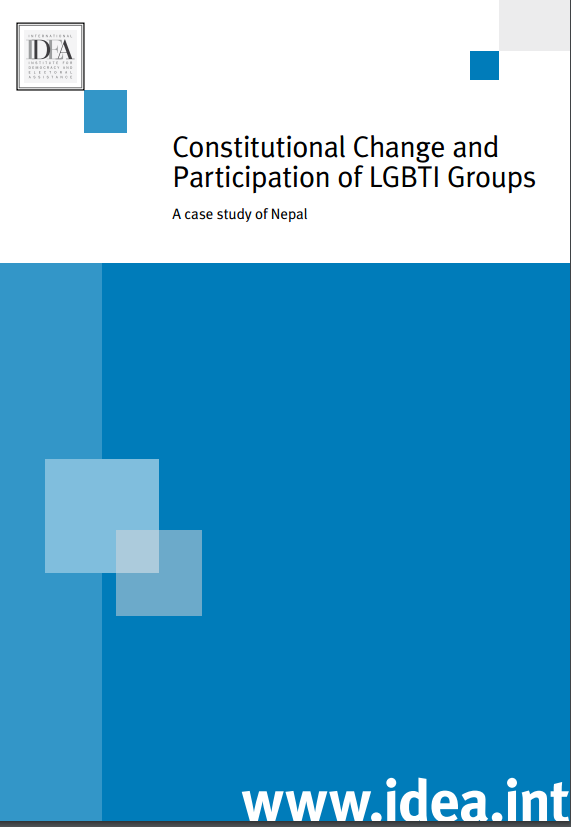Constitutional Change and Participation of LGBTI Groups: A case study of Nepal
When arriving at Kathmandu airport the arrival form contains an interesting feature. Along with the options of male and female under the category of gender, there is a third option: ‘other’. The story of how this option on the form came into being is linked to the personal story of the author of this Discussion Paper, and that of a Nepali non-governmental organization, the Blue Diamond Society.
Over recent decades, the inclusion of rights for lesbian, gay, bisexual, transsexual and intersex (LGBTI) groups in national constitutions has increasingly been seen as an indicator of the strength and consolidation of democracy. However, LGBTI advocates do not have sufficient access to resources providing guidance on how to engage with the constitution-building process or frame demands for equality of rights and recognition in constitutional texts.
Working mostly with leaders of advocacy campaigns themselves, International IDEA has developed detailed accounts of struggles for constitutional equality for sexual orientation minorities in Bolivia, Fiji, Grenada, Kenya, Ireland, Nepal and South Africa. Building on the experiences and knowledge, International IDEA will develop an advocacy guide for LGBTI advocates of constitutional change in other countries. In anticipation of the guide we are making available a selection of national case studies.
